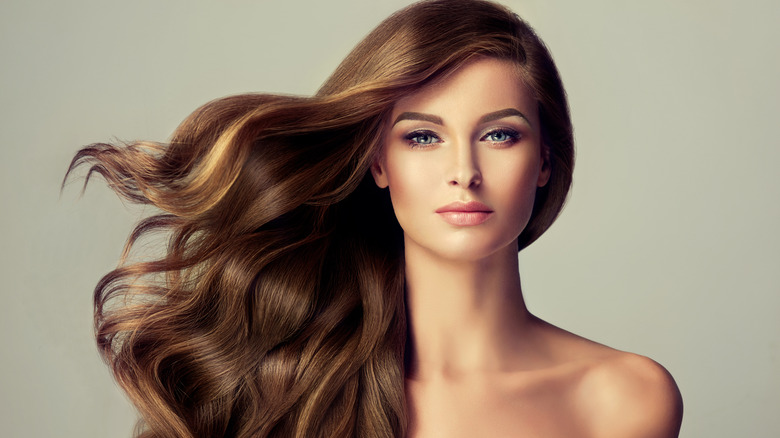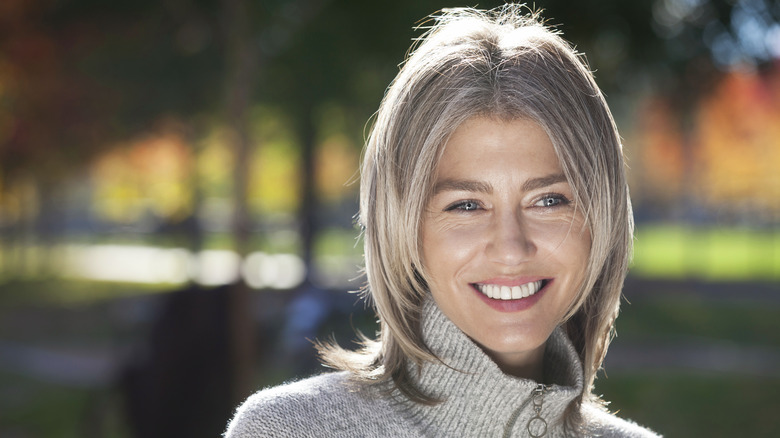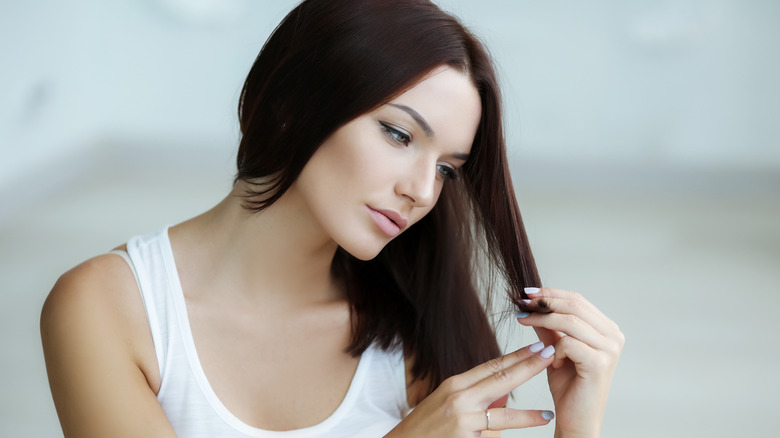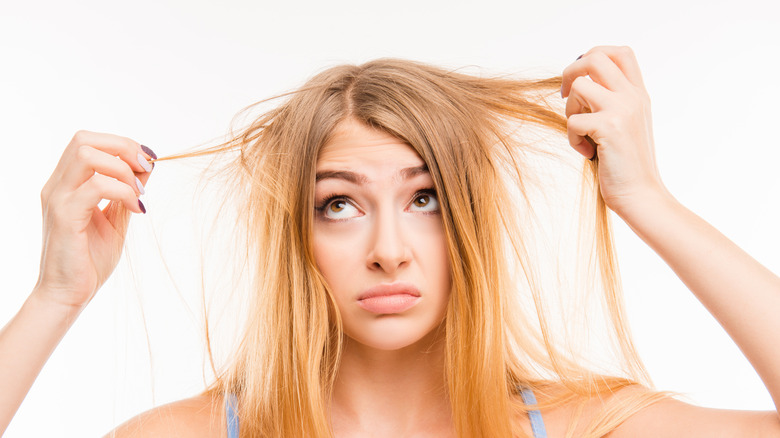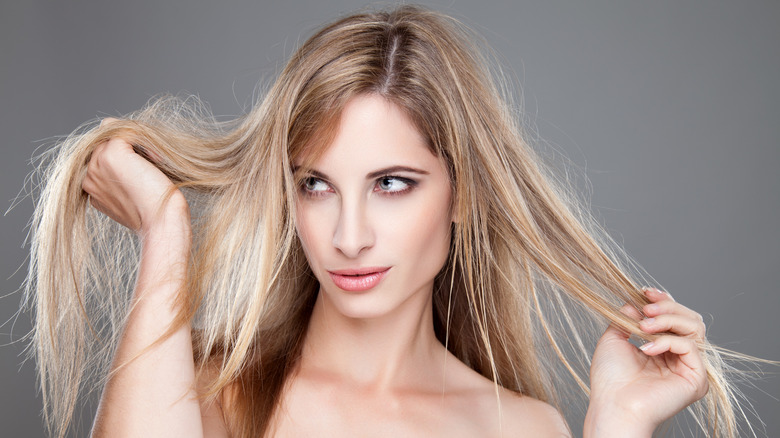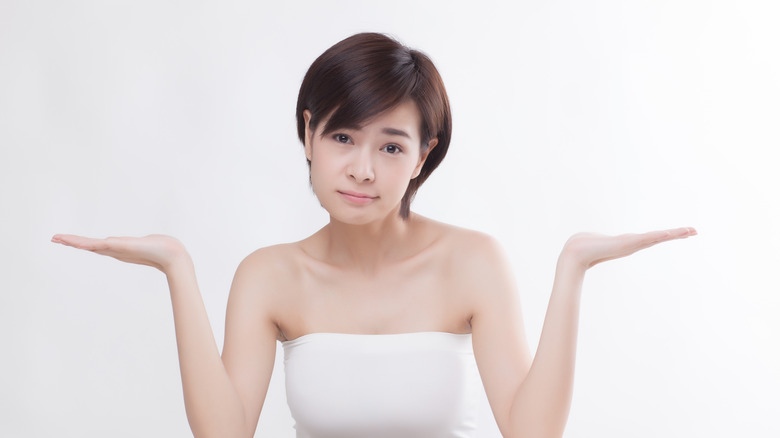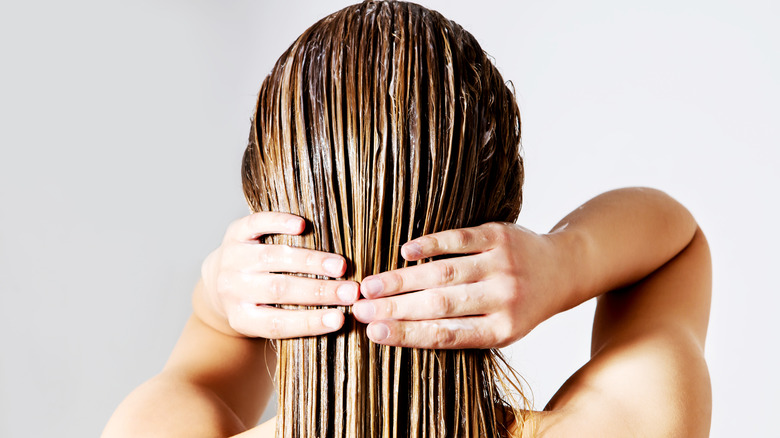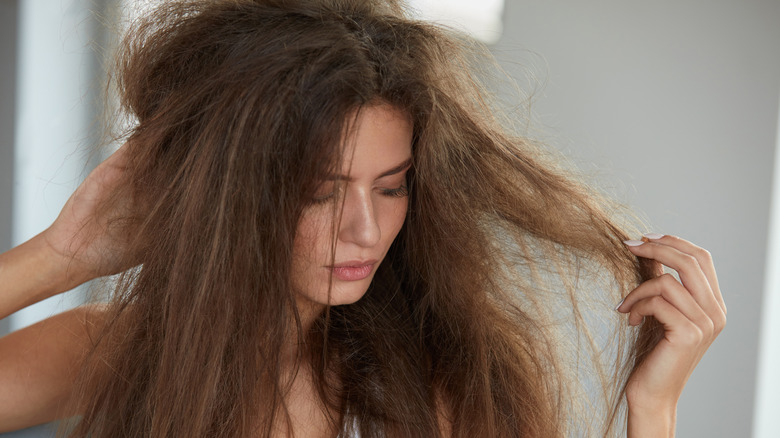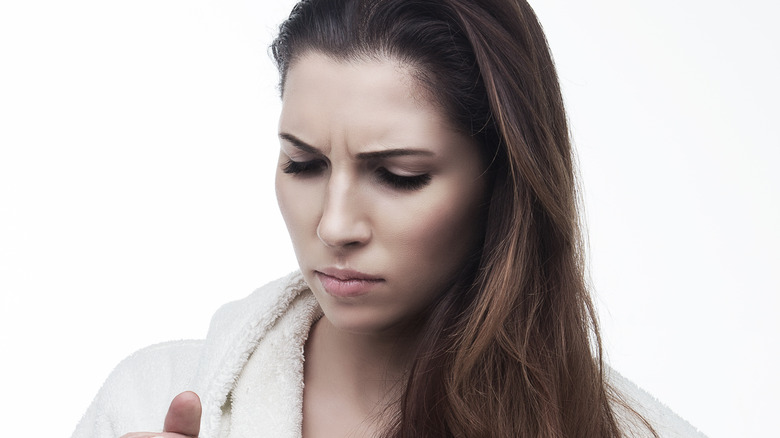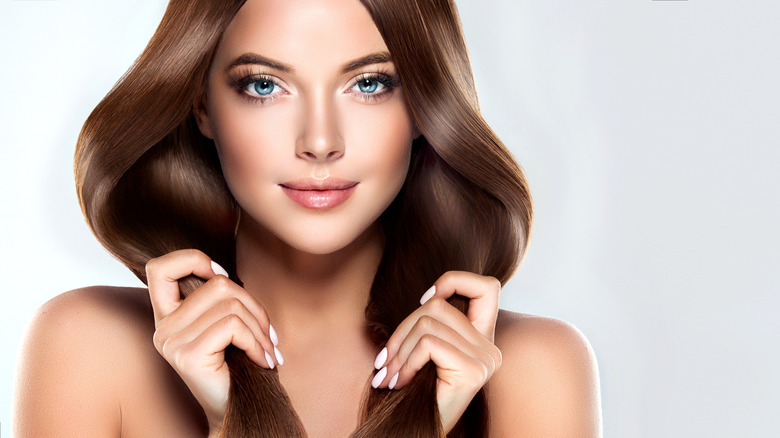How Hair Changes As We Age
When we talk about aging in beauty, we typically talk about skin. We talk about the dark spots and wrinkles that pop up as we get older. We talk about anti-aging skincare products and ingredients that can counteract these changes. What we don't commonly hear about, though, is aging hair (other than the obvious graying). Similar to skin, hair undergoes gradual changes. So we're here to lay it all out and cover the changes that happen to hair as we get older.
It goes gray
Let's begin with the obvious, most well known hair change — it goes grey. There are a couple of reasons that this could happen. Most common and likely is that it's genetic. "People who go grey prematurely or have different patterns of grey hair can thank their parents," Aveda Master Artist and co-owner of Fourteenjay David Adams told me. "It is all genetic."
He further explains that some other reasons for greying could be stress, an unhealthy diet, extreme lifestyle, lack of sleep and serious illness. Hair goes grey because of the lack of melanin production after a certain age, which is what gives hair its color. "When we go grey, we have hair without color and without protein," explains Adams. "Basically there is no such thing as grey hair, it is colorless hair."
Of course you can dye your hair to make it the color you want. However, artistic director for Alterna, Rita Perna-Allor, points out that grey hair takes color differently than pigmented hair. "It is important to use an anti-aging shampoo, conditioner and support products that will help to keep the hair as healthy and nourished as possible," she explains. "Look for ingredients like omega fatty acids and color safe formulas."
It gets thinner
Another more commonly known change in aging hair is that it gets thinner. There are a couple of reasons for this as hair science expert Dr. Alan Bauman explained to me. First, density of hair decreases. Second, hair grows in finer. "Research shows that around the age of 40, a woman's hair also starts to grow finer as time passes," he explains. "It's this finer hair that makes your hair look and feel thinner, whether you experience a significant loss of hair density or not."
Then, there's the actual loss of hair. "As our hair continues to age, instead of losing 100 to 125 hairs a day, which is normal, shedding speeds up, causing thinning in the crown, and in some cases, more scalp to appear as hair follicles are not replacing those lost hairs as quickly." This actual loss of hair and inability to grow back can create a receding hairline or widening partline.
It loses volume
This somewhat goes hand-in-hand with the hair thinning. However, it's important to note that with the loss of density comes the loss of volume and body throughout the hair and along the crown. This may cause women to over-style the hair that's there. This isn't good for it, though. In fact, Dr. Bauman claims it's one of the biggest mistakes women make with aging hair. "As the hair ages, women tend to do more styling, which disrupts and damages the cuticle and makes the hair dull and more prone to breakage." Which brings us to the next point.
It breaks easier
The loss of protein doesn't just affect the color of hair, but it also affects its strength. "A dip in the keratin protein levels make the hair weaker and less elastic," explains Perna-Allor. "Which means more breakage when tugged or pulled." She also explains that the cells on the outer protective cuticle become more fragile as we age, making breakage seemingly inevitable. Dr. Bauman also points out that fine hair is clearly more prone to breakage.
There are products that contain the protein, which can help fill in the tears and gaps and build hair's strength back. Perna-Allor recommends treatment-based repair products such as Alterna Caviar Multi Vitamin Heat Protectant Spray, which boosts hair immunity to damage.
It grows slower
"Hair growth rate slows down in mid-life and spends more time in the resting phase than in the growth phase, which means it won't grow as long as it once did," Perna-Allor explains. This has to do more with the scalp than it does the actual strands of hair. So to keep the scalp healthy to help promote hair growth, use a scalp treatment such as Aveda Pramāsana Scalp Treatment or Alterna Caviar Lengthening Hair and Scalp Elixir.
It gets dryer
"Over time, your hair can look more dry and lifeless, which is actually a by-product of hair thinning," explains Founder + Head Scientist, Lars Skjoth. He also notes that use of heat tools can make hair dryer. "Excessive heat may provoke the scalp and the oil glands. The scalp can become dry and irritated from excessive heat and oil glands may overproduce to protect the scalp." A similar reaction can happen when you over-wash your hair as Dr. Bauman explains. "This can strip the oils from your hair and contribute to dryness." So if you want to keep hair from getting dry, just stay away from the heat tools and try a hair mask once a week.
Its texture changes
Once again, the change in texture is due to the loss in its proteins. "Without protein the hair also changes texture," explains Adams. "Curly hair may go straight or straight hair may go curly." Also, grey hair is a coarser texture than hair with melanin. There's not really much that's going to change the texture back, but it will be easier to manage as long as you keep hair healthy.
It gets duller
The dullness and lack of shine has to do with previously mentioned changes. For instance, as Perna-Allor points out, grey hair doesn't reflect light as well as other, smoother types of hair. Also, the drier hair is, the duller it's going to look. Additionally, the loss of keratin proteins and natural fatty will affect hair's chances for a healthy — AKA shinny — finish.
Just keep hair healthy
Just as there's no way to stop getting older, there's no way to keep hair from aging. It's just a natural part of life we have to deal with. All you can do is maintain hair's health and give it the nutrients it needs to be strong. "Some of the best ingredients to counteract the signs of aging hair and scalp include caffeine, panthenol and niacinamide." Dr. Bauman concludes.
